Dear Parents of America or Anywhere Else: As a gender-nonconforming person, I get a lot of attention — both wanted and unwanted — anytime I walk around in public.
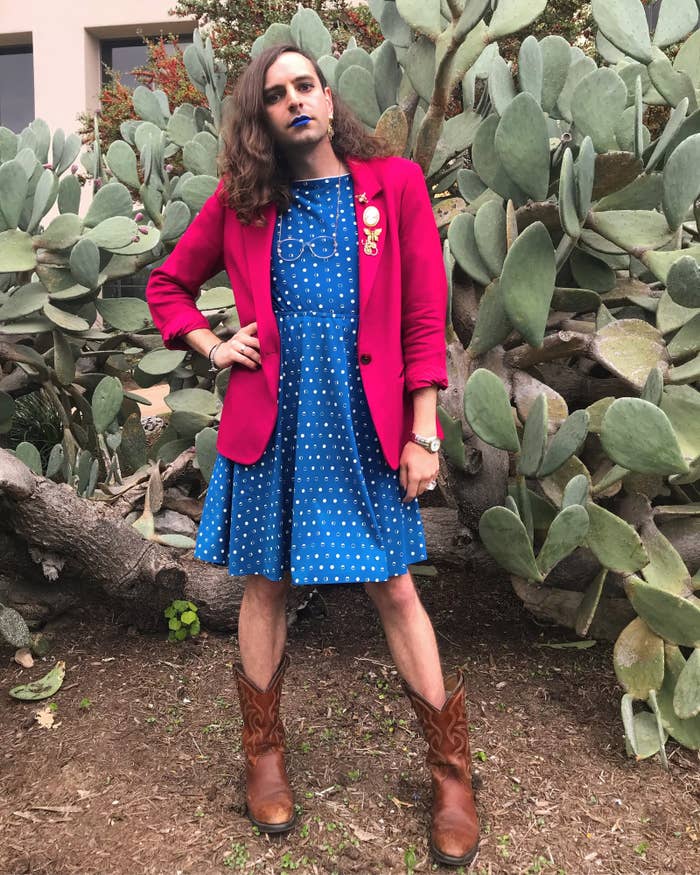
But one type of attention stands out above the rest: the attention of confused children. I first started noticing it when I moved to New York City at the age of 22.
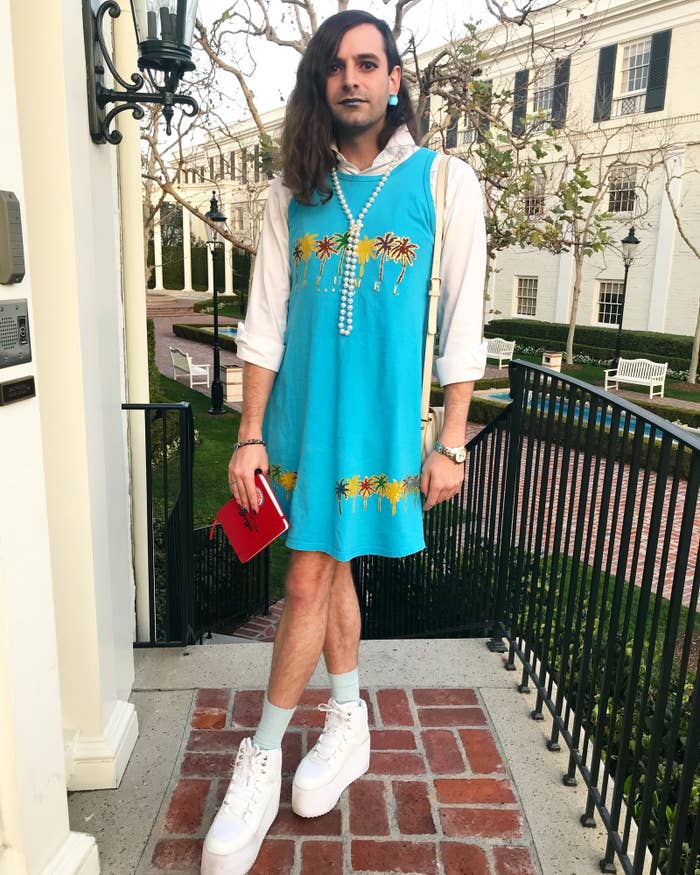
I was reminded of this attention again the other weekend, when I traveled from Los Angeles to Florida for a queer conference at the Orlando Hilton resort.
Half of the hotel was filled with queers trying to learn how to better serve trans youth; the other half was filled with nuclear families who’d come to Orlando to meet Minnie and Elsa and Goofy at Disney World. It made for an interesting combination.
After my keynote speech, sporting a bold purple lip, swim trunks, and a bathrobe, I made my way to the hotel’s lazy river. That’s when I noticed the familiar eyes following me; the kids were back at it, blatantly staring at me to their heart’s content.

But the most common reaction was that your children, upon noticing my gender expression, turned to you and exclaimed something like, “Mommy, that boy is wearing lipstick!” or “Look, Dad! Look at what he’s wearing!”
After your kids called your attention to my gender expression, you all did pretty much the same thing. You looked my way, made eye contact with me, became swiftly embarrassed yourselves, and told your kids that “It’s not nice to talk about strangers.”
Your kids, upon seeing your embarrassment at the situation, turned away, became embarrassed *themselves*, and, after a few minutes’ recovery from the shame of it all, resumed splashing around in the pool. This interaction played out dozens of times over the course of my weekend in Orlando.
Parents, I’ve decided that we need to have a little chat, because you can do better than that. You have to do better. You owe it to me, to the trans community, and to your kids’ emotional development to do better.
It starts with admitting that, while it may have seemed that the interaction was only about teaching your children not to talk about strangers, there was something much more fundamental at stake.
In reality, when your child turned to you and said “Look, that boy is wearing lipstick!” what they were really doing was asking a question.
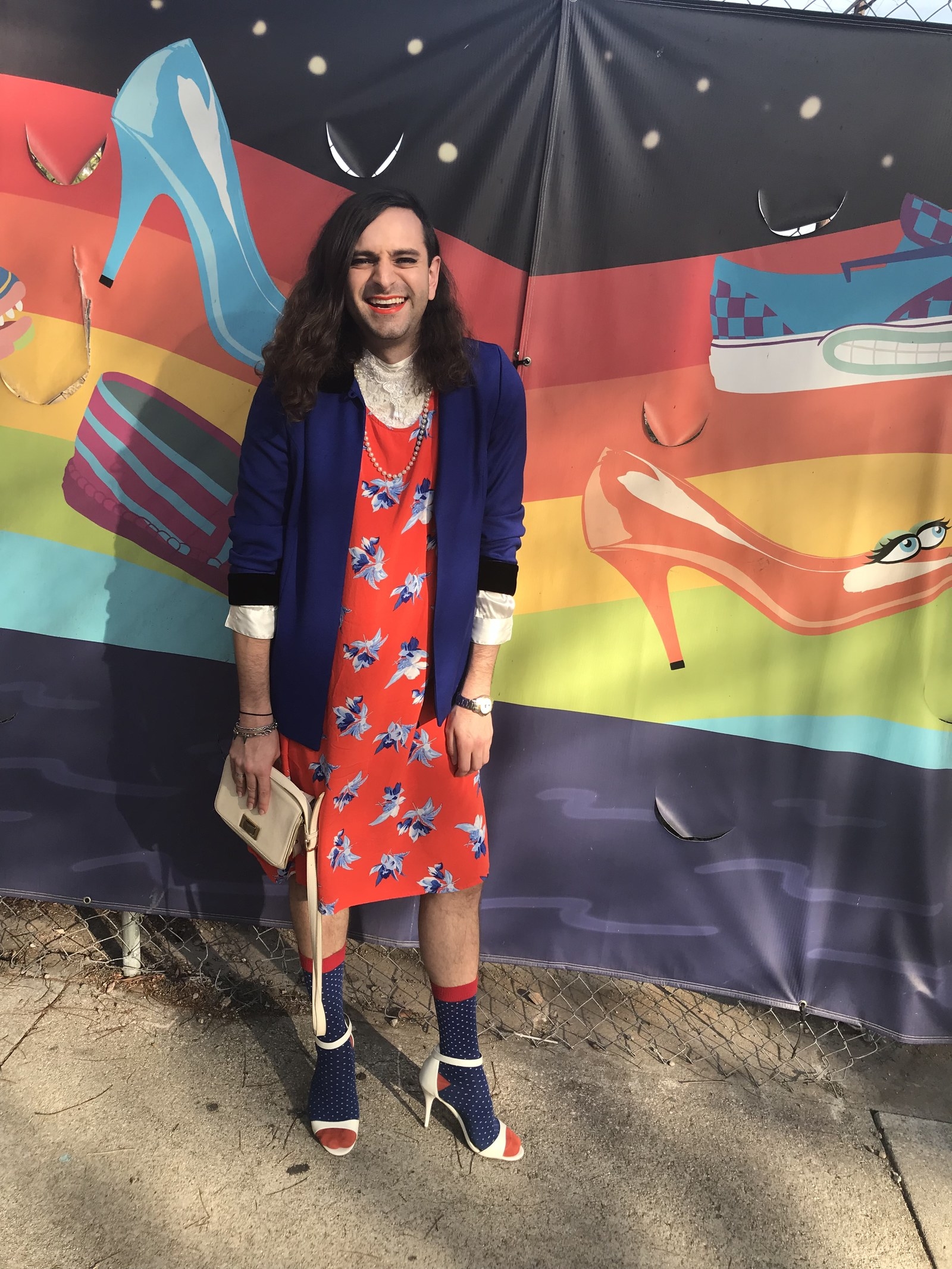
When you turned to your child and awkwardly said “It’s not nice to talk about strangers,” you not only didn’t answer their question, you effectively shut down what could’ve been a productive and affirming conversation.
You took a moment when your child could’ve learned an important lesson about how to respect the broad diversity of gender expression, and reduced it to a tangential and less important lesson about manners in public. Furthermore, by demonstrating your own discomfort with the situation, you made your kids uncomfortable too — inadvertently furthering the culture of stigma and discomfort that surrounds gender-nonconforming people.
Parents of the world, I’d like to suggest a better paradigm for handling this situation when it inevitably arises again. The next time your child turns to you and says, “Look! That boy is wearing lipstick!” or “That girl is wearing a bowtie!” don’t shut down the conversation by telling them not to talk about strangers.

Instead, try answering the question that they’re really asking; try talking to them about the beautiful diversity of gender expression in our world.
I promise it’s not that hard. You could say “Yes, Johnny, sometimes boys do wear lipstick and that is perfectly okay. You can wear lipstick too if you want!” Or you could say, “Why yes, Sarah, she is wearing a bowtie. Girls and boys can both wear bowties. Would you like one?”
Or, if your child is a savant, you could even say “Yes, Tabitha. While we are often presented with the myopic notion that gender is biological in nature, it’s actually a socially constructed, performative/discursive system that creates hegemonic power within society and varies across cultures, time, and anthropological space. You’ll learn all about that when you go to college on a full scholarship, become a gender studies major, and read Judith Butler and Michel Foucault en route to writing your thesis!”
And for the love of god, no matter what response you choose, please don’t be awkward about it.
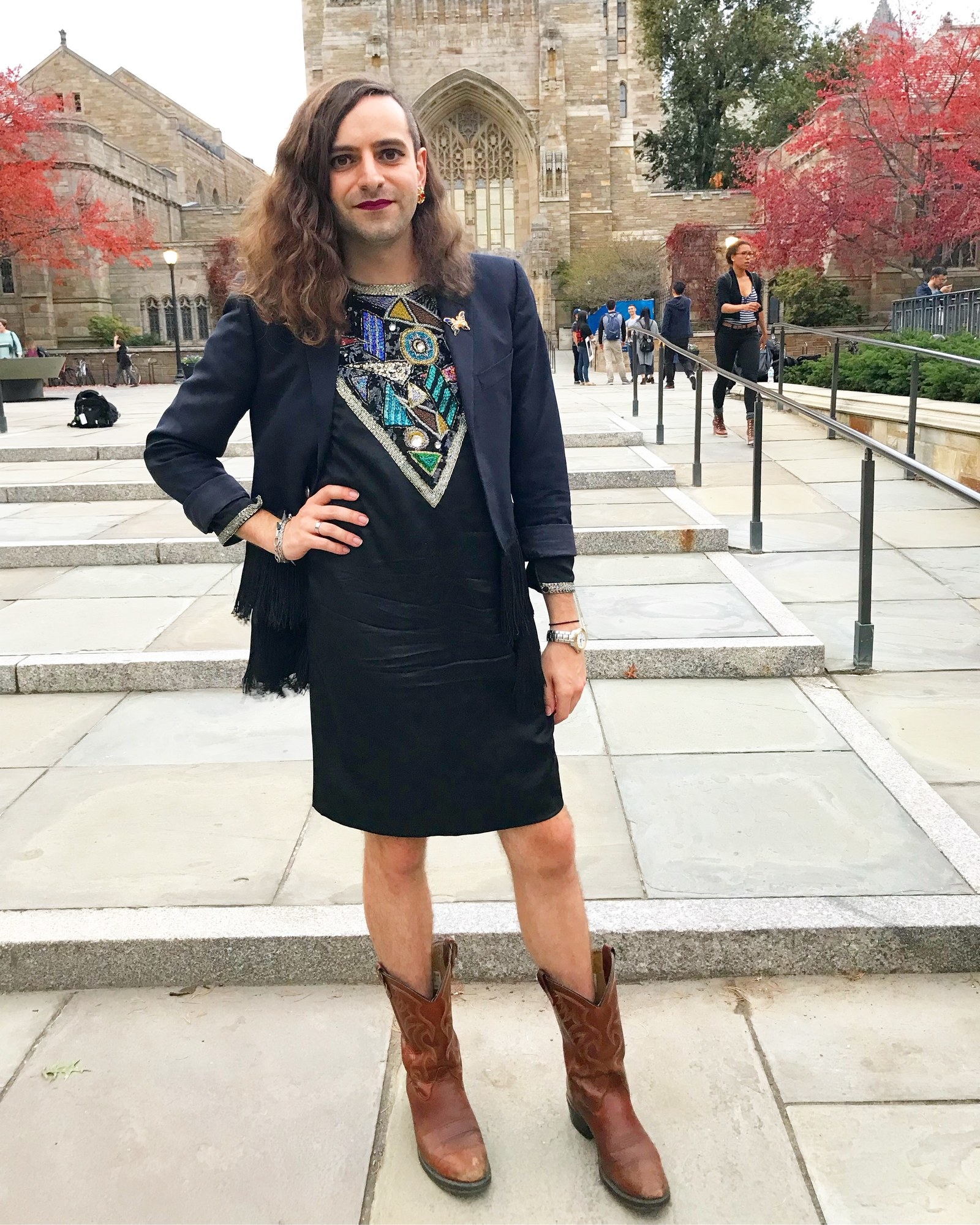
Just be cool, alright? Is that really so much to ask?
Any one of these responses (particularly the last one) not only answers the question that your child is really asking you, it also teaches your child, early on, to respect the natural diversity of gender in our world. Equally importantly, it opens up new possibilities for your child to lovingly explore their own gender identity in years to come.
So, parents, while it may be rude to talk about strangers, I’m gonna go ahead and give your kids a pass. I am fine with your children talking about me in public, as long as you’re willing to talk about me in public too.
The next time you see me standing on the subway in a pair of heels or strutting poolside in a purple lip and your child says something about it, I give you full permission to use me as a teaching opportunity.
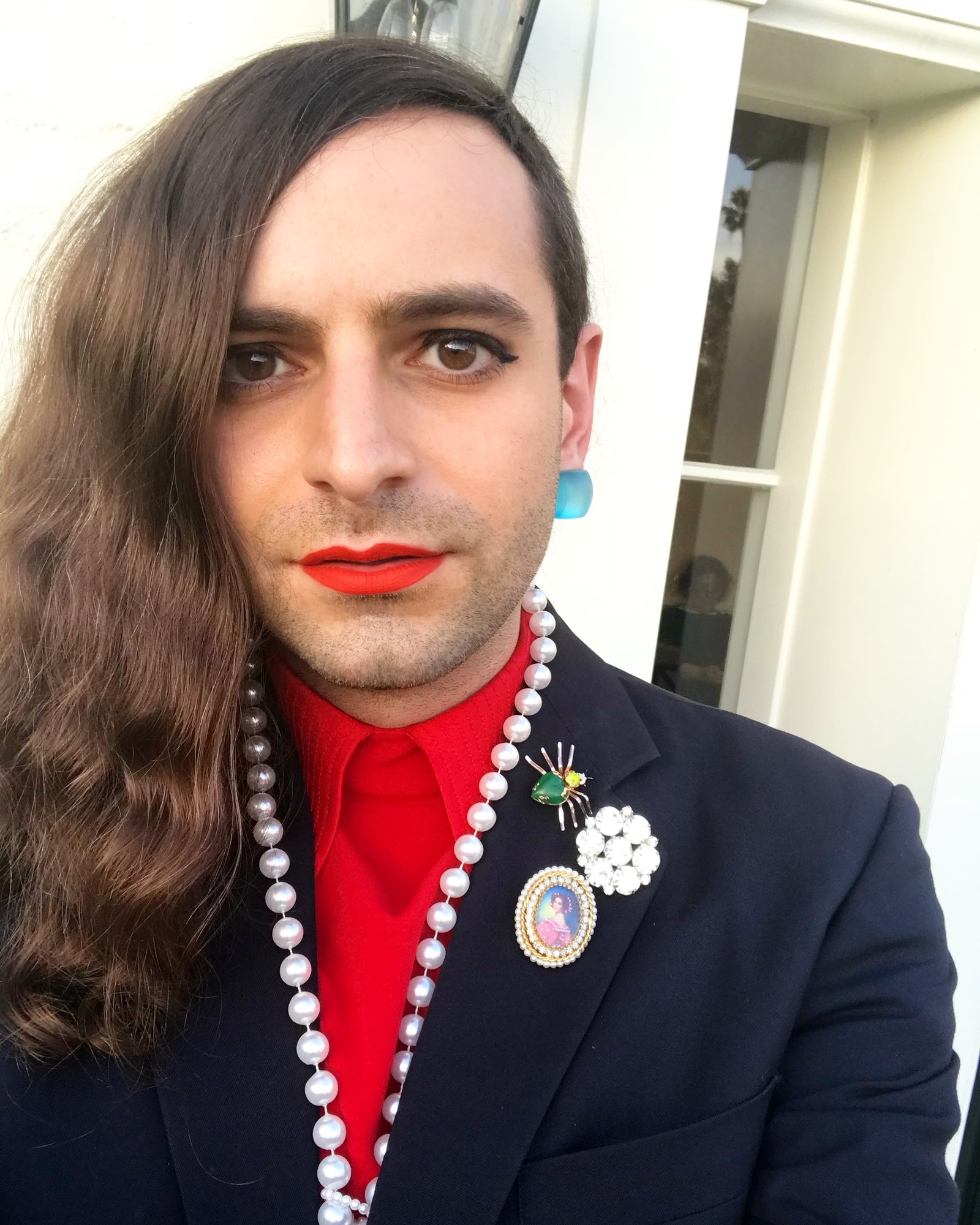
P.S. If you do feel guilty using my existence as a teachable moment about gender, I will accept compensation in the form of day passes to Disney World. I never got to ride Space Mountain as a kid, so.
P.P.S. I will also accept free drinks from the pool bar.
